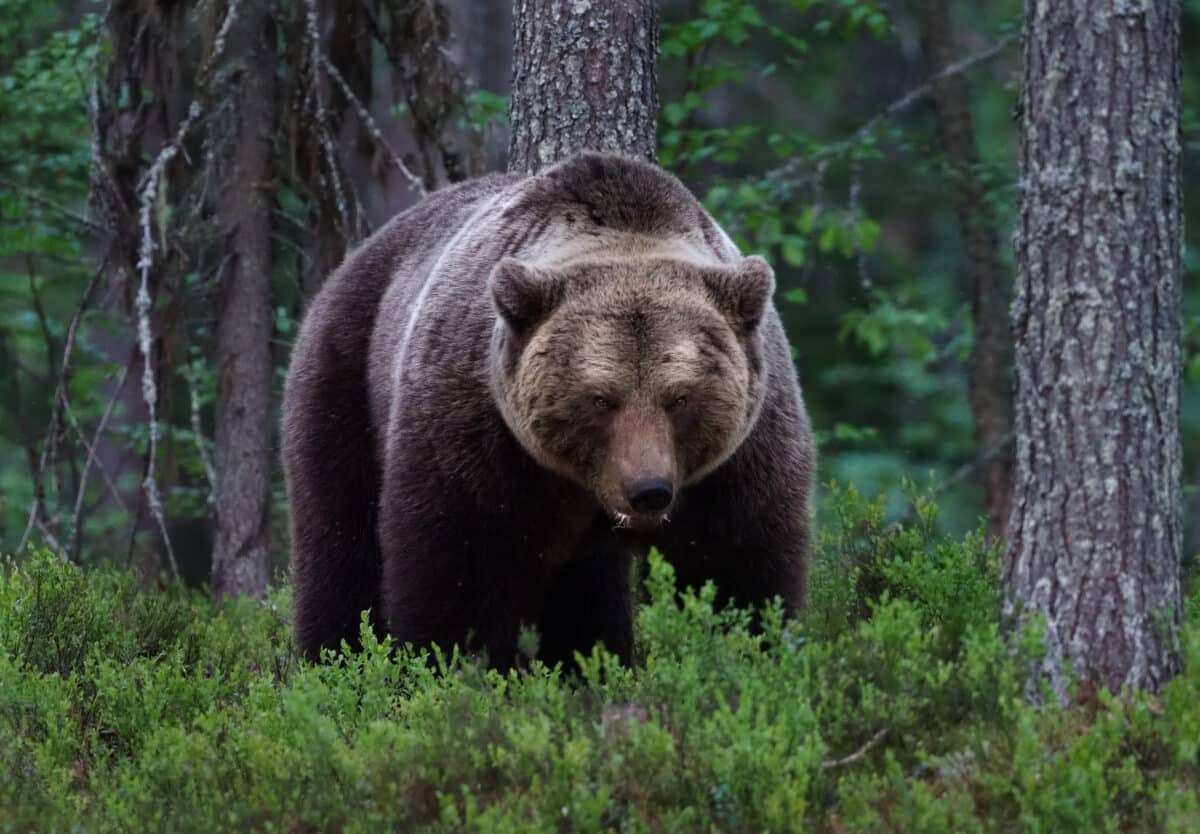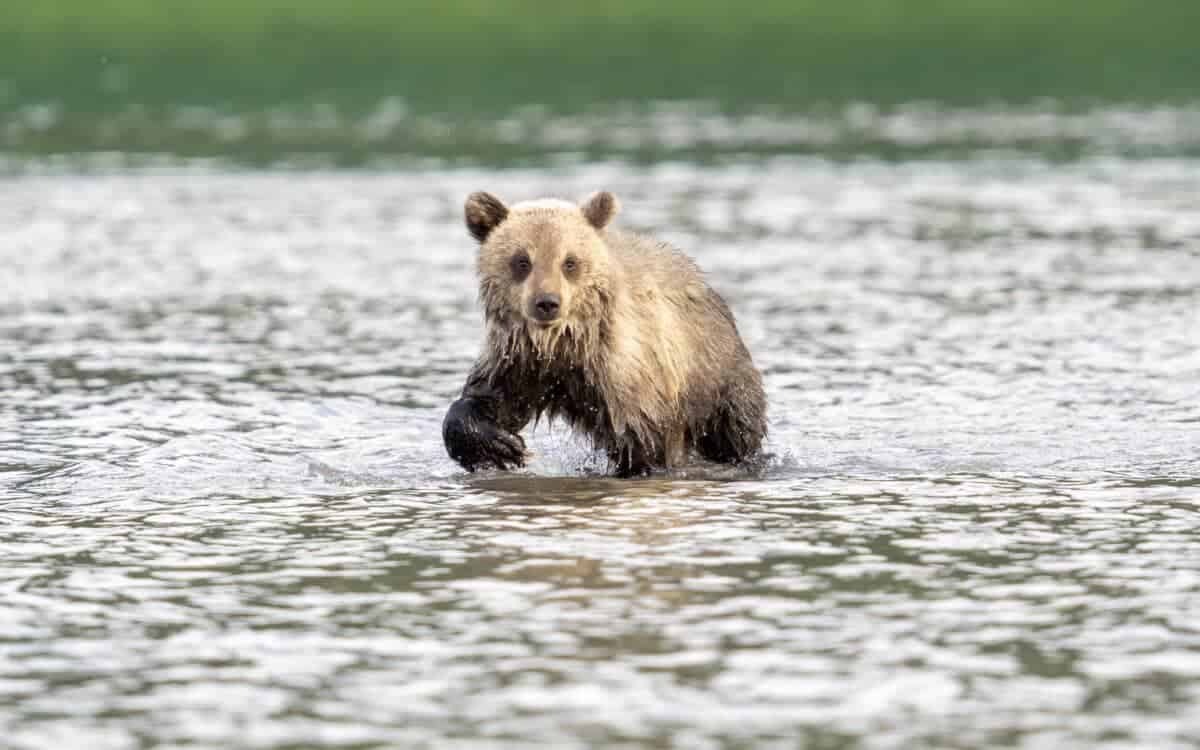In the remote wilderness of northern Japan, a heartbreaking tale of survival unfolds as brown bear cubs face an unprecedented threat – starvation. As many as eight out of ten cubs born during this year in this isolated corner of Hokkaido have met a tragic end due to a severe salmon shortage. Experts point their fingers at the alarming rise in sea temperatures, a consequence of the climate crisis, for the cub deaths. This crisis, unfolding in the breathtaking Unesco heritage site of Shiretoko Peninsula, sends a chilling message about the impact of climate change on wildlife.
The Predicament of the Cubs
Local authorities were jolted into action when a tour boat operator made a heart-wrenching discovery. A starving bear cub was spotted on the eastern coast of the Shiretoko Peninsula, desperately sifting through piles of beached seaweed and turning over rocks in search of sustenance. The cub’s emaciated form told a harrowing tale of survival in the face of adversity.
The Vital Role of Pink Salmon
Pink salmon, alongside acorns, form a critical part of the brown bear’s diet in this region. These fish hatch in Hokkaido’s rivers and spend their winters in the sea. Between August and October, they return to the streams of Shiretoko to lay their eggs. Historically, brown bears would patiently await the salmon’s upstream journey. However, the dire scarcity of river fish has forced these bears to swim in the sea, a distressing change in their hunting habits.
The Troubling Rise in Sea Temperatures
Experts point to rising sea temperatures off Hokkaido as a primary culprit in this ecological crisis. In 2021, sea surface temperatures in this region remained above 20 degrees Celsius from mid-July to early August, a staggering 5 degrees higher than the average for that period. This abnormal warming of the waters disrupts the delicate balance of marine ecosystems, affecting the pink salmon population that bears rely on.
The Grim Reality for Brown Bear Cubs
The researcher Masami Yamanaka, at the Shiretoko Nature Foundation, provides a somber assessment of the situation. The combined effects of a salmon shortage and a poor acorn harvest have proven catastrophic for brown bear cubs. Shockingly, an estimated 70% to 80% of the cubs born this year have perished. It’s a grim reality that underscores the urgency of addressing the ecological challenges facing this region.

A Sharp Decline in Salmon Catch
To understand the gravity of the situation, we must delve into the statistics. In 2020, fishers in Hokkaido caught a whopping 482,775 pink salmon in the rivers between July 25th and September 5th. However, last year, the numbers dwindled to a meager 23,298. These figures reveal a stark decline in the pink salmon population, further exacerbated by the statistical evidence showing that good catches only happen every other year. The 2022 haul was alarmingly small, exacerbating the challenges for the brown bears.
Impact Beyond the Bears
The ripple effects of the salmon shortage extend far beyond the bear population. The scarcity of acorns, another key component of the brown bear’s diet, has led to an increase in bear attacks on humans in parts of northern Japan, mostly in Hokkaido. Hungry and desperate, these bears venture into populated areas in search of food, resulting in conflicts that threaten both human and bear safety.
The Grim Statistics
The gravity of the situation is further emphasized by alarming statistics. In the year leading up to April 2022, a total of 1,056 brown bears were captured and killed in Hokkaido, marking the highest figure on record. This marked the first time that the number had exceeded 1,000. Of these, 999 brown bears met their end, either to prevent damage to crops or due to their perceived threat to local communities.
Human Lives at Risk
The consequences of the bear crisis extend to human lives as well. In the same period, 14 people were either injured or killed in incidents involving bears. Crop damage soared to a staggering ¥262 million (£1.44 million), setting new records. These figures paint a bleak picture of the escalating conflict between humans and bears as both struggle to survive in the changing landscape of northern Japan.
Conclusion
The tragic tale of the brown bear cubs in Japan serves as a poignant reminder of the far-reaching consequences of the climate crisis. Rising sea temperatures, driven by global heating, have disrupted the delicate balance of nature in Hokkaido’s Shiretoko Peninsula. As these majestic creatures battle for their very existence, it is a stark call to action for all of us. The fate of these cubs should serve as a rallying cry to address climate change, protect vital ecosystems, and preserve the rich biodiversity of our planet.
Up next:
Watch: Man Talking To a Brown Bear and Feeding Him Treats
Watch As Bear Breaks Into House
The Largest Brown Bear Ever Recorded
- Discover: Top 12 American Animals and Wildlife - April 15, 2024
- 10 Animals That Hibernate Through the US Winter - April 12, 2024
- Watch: The Kleptomaniac Cat of Houston - April 2, 2024

